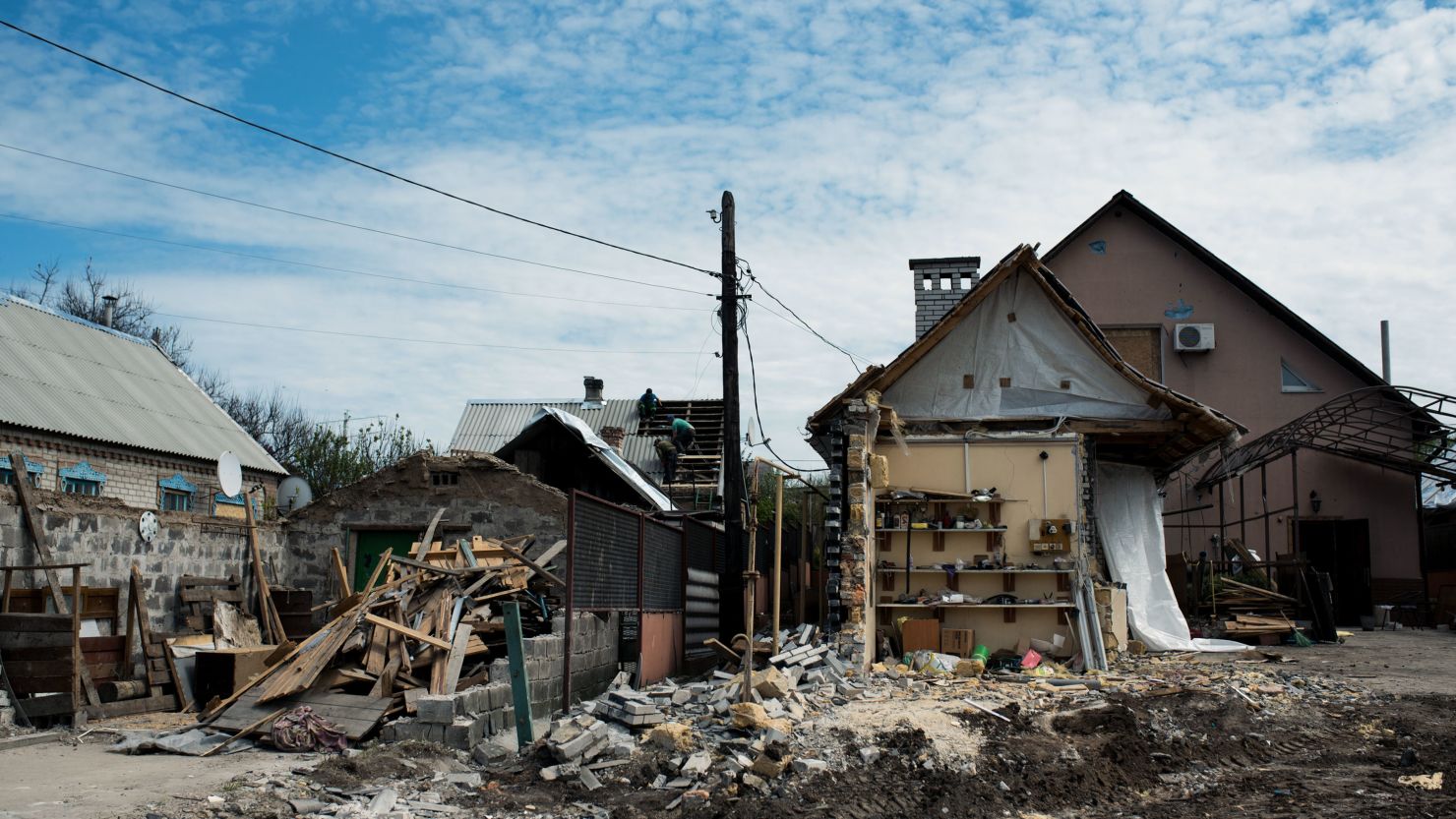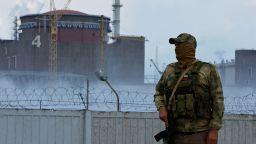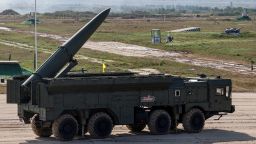The United Nations’ nuclear watchdog has raised concerns as to the safety of the Zaporizhzhia nuclear power plant, describing the situation as “increasingly unpredictable,” after Moscow ordered the evacuation of residents from Russian-occupied areas close to the facility.
More than 1,600 people, including 660 children, have been evacuated from Russian-occupied towns on the front lines in Zaporizhzhia, Yevgeniy Balitskiy, the Russia-appointed acting head of Zaporizhzhia region administration, said Monday.
The Zaporizhzhia nuclear plant, Europe’s largest nuclear power station, is held by Russian forces but mostly operated by a Ukrainian workforce.
The town of Enerhodar was among 18 settlements whose residents were evacuated over the weekend. Most of the plant’s staff live in the town, the International Atomic Energy Agency director general Rafael Mariano Grossi said in a statement.
Grossi said he was deeply concerned about the “increasingly tense, stressful, and challenging conditions” for personnel and their families and about “the very real nuclear safety and security risks facing the plant.”
“We must act now to prevent the threat of a severe nuclear accident and its associated consequences for the population and the environment,” Grossi warned.
The evacuation of the town come amid rumors of an anticipated Ukrainian counteroffensive, with the southern region likely to be a major target as Kyiv seeks to push back Moscow’s invasion.
The site director Yuri Chernichuk said operating staff are not being evacuated and “are doing everything necessary to ensure nuclear safety and security at the plant.”
Chernichuk said the plant’s six reactors are all in shutdown mode and its equipment is being maintained, “in accordance with all necessary nuclear safety and security regulations,” according to Grossi.
The plant’s position on the front lines – located on the eastern bank of the Dnipro river – means shelling in the surrounding towns and near the facility is common, according to local reports.
It has frequently been disconnected from Ukraine’s power grid due to intense Russian shelling in the area, repeatedly raising fears across Europe of a nuclear accident.
The plant is also significant because Ukraine relies heavily on nuclear power. Should Russia keep it, Ukraine would lose 20% of its domestic electricity generating capacity. Analysts have said Russia would want to capture the plant undamaged, with hopes of serving its own electricity market.
The IAEA said experts at the site continue to hear shelling on a regular basis, including late on Friday.
Claims of Russian soldiers evacuating as civilians
The evacuations, which began in Zaporizhzhia on Friday, were a “necessary measure” due to “intensified shelling of settlements” close to the front line, said Yevgeny Balitsky, the Russian-appointed acting governor of the partially occupied region.
Local Telegram channels reported sightings of evacuation buses and authorities telling residents to pack their bags and take their children out of kindergartens.
Evacuated residents were being placed in temporary accommodation and included children of elementary school age, Balitskiy said. He claimed the evacuees “have everything they need: food, a place to sleep, constant contact and consultation with specialists.”
Ukrainian officials have charged that Russian forces have used evacuations as a means to forcibly deport Ukrainians.
Natalia Humeniuk, spokesperson for Ukraine’s Operational Command South, told local media the evacuations were “an imitation of care for the local residents.”
She said this was a standard practice previously used by the Russians.
“They are trying to evacuate the people to the places where they set up their own defense lines and where they are setting their units in order to use local civilians as a cover,” Humeniuk said.
Her comments came as the exiled Ukrainian mayor of Melitopol, Ivan Fedorov, claimed Russian soldiers are trying to leave Zaporizhzhia disguised as civilians.
“There are soldiers who try to escape from the temporarily occupied territories,” Fedorov said in an interview with Ukrainian media Sunday.
“Our residents report some cases of Russian soldiers dressing up in civilian clothes. One of the purposes why they do this is to run from the temporarily occupied territory.”
However, Fedorov also said Russian troops “are moving more and more to the Zaporizhzhia frontline.”
Meanwhile, Ukrainian military officials reported Sunday that Russian forces continued to shell the region, but with no casualties in the past 24 hours.
On the ground
On Sunday, Ukraine’s Operation Command South spokeswoman said Russian forces were trying to exhaust Ukraine’s air defense system.
“They are trying to find a way around it. And they are also expanding their tactics because they do not have a stable stock of the means that they can operate with,” Humeniuk said, adding the Russians are also trying “to test and find out where the air defense systems are located.”
Early Monday, five people were wounded in Kyiv following Russian drone attacks on districts of the Ukrainian capital overnight, according to Serhiy Popko, the head of Kyiv City Military Administration (KCMA).
In the south, Russia launched eight missiles at the port city of Odesa overnight Sunday, Ukraine’s air force said.
Russian missile attacks were also recorded in Kharkiv, Kherson and Mykolaiv regions, according to Ukraine’s military.
And in Ukraine’s east, the head of the Wagner mercenary group claimed its troops have advanced in the embattled city of Bakhmut.
Wagner chief Yevgeny Prigozhin said Sunday his forces have advanced in “different directions so far,” though the Ukrainians still control 2.37 square kilometers.
Prigozhin has now suggested his forces will stay in Bakhmut after Russia’s Ministry of Defense promised to provide them with more ammunition, apparently backtracking on a threat to withdraw.
Bakhmut has been the site of a months-long assault by Russian forces that has driven thousands from their homes and left the area devastated.
But, despite the vast amounts of manpower and resources Russia has poured into capturing Bakhmut, Moscow’s forces have suffered high casualties and been unable to take total control of the city.
CNN’s Maria Kostenko, Josh Pennington, Olga Voitovych and Tim Lister contributed reporting.




